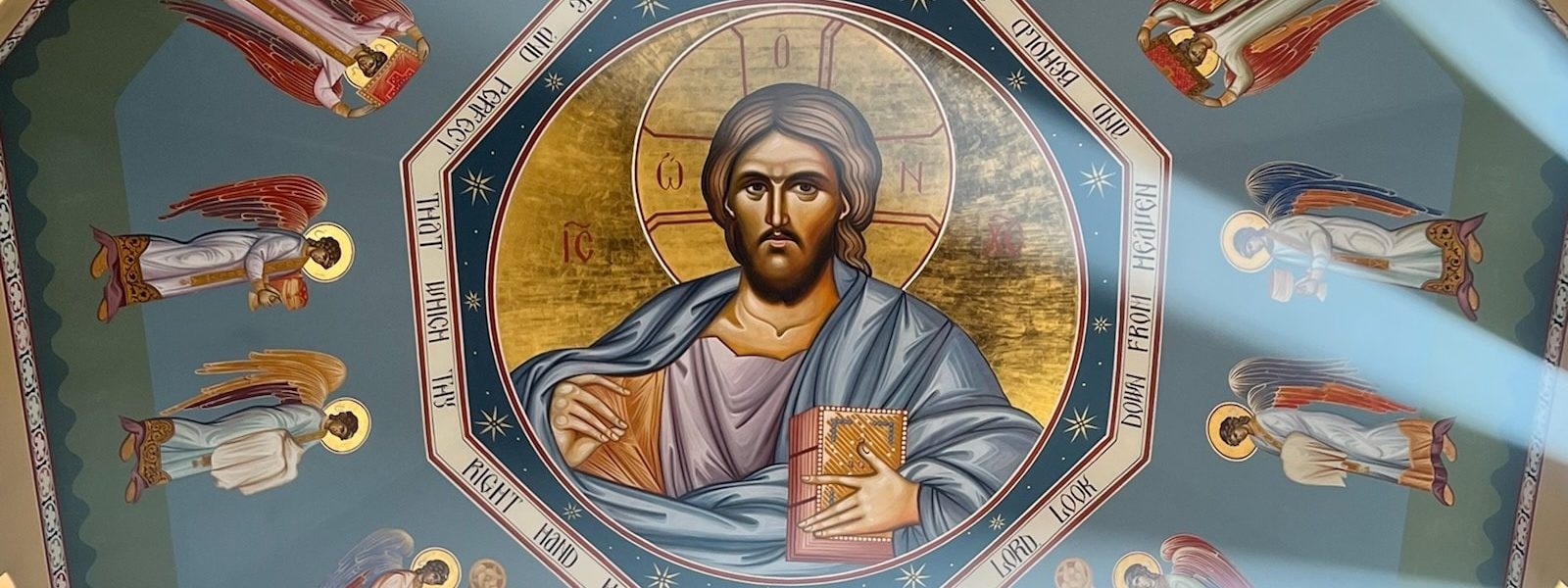Choir
The Orthodox Church’s liturgical music has the ability to raise the spirits of worshippers and singers alike as we offer up songs of praise, petition, thanksgiving, and love. Visitors attending an Orthodox church for the first time might notice that there are no musical instruments. We believe that there’s one thing no instrument can do as well as a human being: understand what is being said and enter in with a heart of worship.
The St. Basil’s choir has produced an album – “Hymns in Eight Tones” that is available in our bookstore.
We encourage congregational participation in all choir music and hope that our brothers and sisters in Christ will join us in song. If you would like to receive copies of the music of the Divine Liturgy in advance, contact our Choir Director, Rdr. Rick Kelso.
The music we currently use for the Divine Liturgy is a combination of two sources. First is the choral music as composed by Mr. Nazo Zakkak, a composer of the Antiochian Archdiocese. His work can be found here.
Secondly, the Byzantine Chant we use for the Divine Liturgy is primarily from the Divine Hymnal, which was composed by Joseph Yazbeck in collaboration with the School of Ecclesiastic Music at Mt. Lebanon. The material can be found here. This material is available in both Psaltic Notation & western staff notation, and is featured on the CD called “The Divine Liturgy of the Holy Orthodox Church of Antioch”, also by the School of Ecclesiastic Music at Mt. Lebanon.
Choir Director: Rdr. Rick Kelso
Chanting
Orthodox liturgical music includes sacred verse that is chanted by one chanter or a group of chanters, in a tradition that dates back o the first centuries of the Christian Church. Chanted hymnody imparts the text in a simple but meaningful way, allowing listeners to listen with their ears, their hearts, and their minds. In the evening Vespers service and morning Orthros services especially, as well as on feast day services, chanters carry teachings and theology in song. This is often sung antiphonally (literally, ‘voice against voice’), as a dialogue between chanters or between a chanter and clergy.
We chant in the Byzantine tradition, in a repeating eight-week cycle of modes or tones. Additional harmony takes the form of a grounding note sung continuously, called an ison.
The music we use for our chanted services comes primarily from the work of Mr. Basil Kazan, whose early work in adapting Byzantine Chant to English and into staff notation was critical for establishing a chant tradition in North America. His work, among others, can currently be accessed at the online Antiochian Sacred Music Library.
We also use music from other contemporary composers whose work is carrying the Byzantine Chant tradition into the 21st century. Among these other works we utilize include compositions by Papa Ephraim from St. Anthony’s Monastery in Arizona, whose work is entitled “The Divine Music Project”. Additional compositions that we utilize come from composers such as Rassem el-Massih, the Protopsaltis of the Antiochian Archdiocese of North America and Jessica Suchy-Pilalis, a chanter in the Greek Archdiocese; both of whose work is also found on the Antiochian Sacred Music Library mentioned above.
Chanters: Sdn. Nicholas Issa, Rdr. John Begley, Rdr. Rick Kelso, and Sarah Kurian.
Related Links
Sacred Music Library – Antiochian Archdiocese of North America
The Divine Music Project – St. Anthony’s Monastery
Divine Hymnal – Joseph Yazbeck & School of Ecclesiastic Music at Mt. Lebanon
Learn More
Orthodoxia Radio – Includes Lessons & Audio to learn Byzantine Chant
Learn Byzantine Chant & Notation – St. George Antiochian Cathedral in Pittsburgh
Byzantine Beginnings – A fun way to learn Byzantine Chant & Notation
St. Romanos Press – Lessons to learn Byzantine Chant
Cappella Romana, Vocal Ensemble specializing in Byzantine Chant
